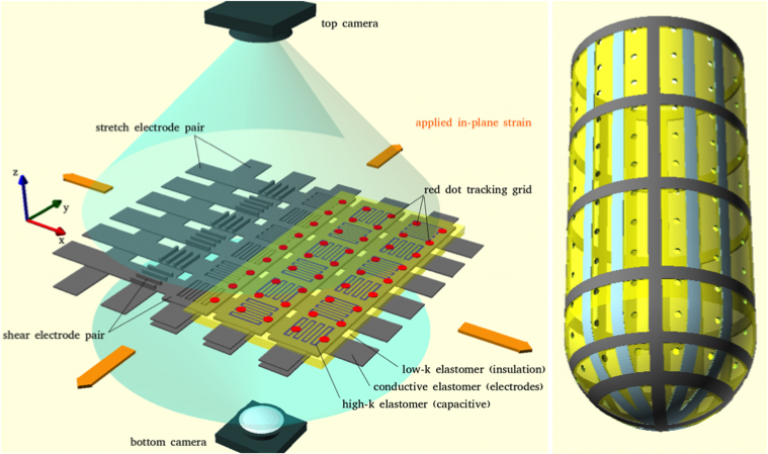‘Smart’ prosthetic liner monitors wearer’s temperature and actively cools
Most lower-limb prosthetics require a liner material to ensures mechanical transmission of forces while ensuring comfort and preventing skin damage.

27 September 2018
Made of silicone rubber these unbreathable liners lead to sweating which, when coupled with friction, causes skin deterioration and infection. This is one of the most common reasons given by patients for why they choose not to wear prostheses.
Creating a liner material that ensures the transmission of forces while ensuring comfort and preventing skin damage is an engineering challenge – particularly as a wearer’s body changes size and shape throughout the day.
The research team led by Dr Cathy Holloway and Professor Mark Miodownik is developing new wearable materials that enable prosthesis-wearers to monitor temperature, humidity and slippage throughout the day. To do this we are also conducting several ‘in-the-wild’ studies to measure heat and sweat issues.
The aim is to create bespoke silicone liners that will be 3D printed to create a breathable material that contains active cooling channels and senses stresses feeding back the data to the wearer.
Related links:
UCL Interaction Centre
UCL Mechanical Engineering
UCL Institute of Making
Global Disability Hub
COMPLeX
 Close
Close

